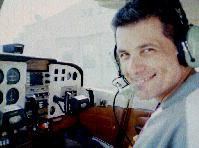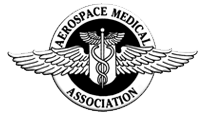FAA Medical Certification 7 Things Every Pilot Should Know
 The goal Pilot Medical Solutions is to provide pilots with a proactive approach to potentially challenging FAA medical issues.
The goal Pilot Medical Solutions is to provide pilots with a proactive approach to potentially challenging FAA medical issues.
This document addresses the most common reasons unsuspecting pilots may lose their medical certification.
Please consult your physician. The issues discussed here are presented here as guidelines and are not applicable to everyone. The information contained in this document is accurate as of October 16, 2008.
Copyright (C) 2008, Pilot Medical Solutions, Inc. All rights reserved.
Pilot Medical Brief – Volume 79
Pilot Medical Solutions, Inc.
www.leftseat.com
Choosing an AME…………….1
Before Your FAA Medical Exam…………………………………2
What’s new? Has anything changed since your last FAA medical exam? Evaluations, pre-FAA exams are
a must.
About the Exam Application Form……………………….…..3
What is reportable.
Being honest without jeopardizing certification.
Medications………………….. 4
What is acceptable to the FAA?
What is safe?
Heart Evaluations and Treatments…………………….5
Heart Scans, EKG’s, Blood Pressure/Lipid Management
Vision…………………………..6
Standards and Pre-Testing
Waivers ……………………….7
Solutions for disqualifying conditions
(1) CHOOSING AN AVIATION MEDICAL EXAMINER
The FAA has designated approximately three thousand Aviation Medical Examiners (AME’s). Eighty-percent of the AME’s do twenty-percent of the FAA exams with 50% of AME’s performing less than 25 FAA exams per year. During their FAA designation training, AMEs are taught: “When in doubt, defer the exam paperwork to the actual FAA in Oklahoma for a decision.” The deferral process usually means delays of at least 3 months and often 6 or more. Having an experienced AME is extremely important.
Erwin Samuelson, MD, Senior AME in Redondo Beach California notes: “I perform about a thousand FAA medicals per year, yet every day I learn something new.” One way to assure your AME has the right stuff is to find out who pilots and flight instructors in your area recommend. A list of Pilot Advocate AME’s is located at: preferredAME.htm. The checklist below may also assist you in selecting a good AME.
———————–BEFORE AME CHECKLIST———————————————————–
Is he/she a pilot? YES / NO
Does he/she perform more than 25 exams per year? YES / NO
Is he/she a member of at least one of the following organizations:
The Civil Aviation Medical Association, The Aerospace Medical
Association, The Experimental Aircraft Association, or
The Aircraft Owners and Pilots Association? YES / NO
If he/she discovers a medical problem, will he/she hold your
exam for the allowed 2 weeks in order for your condition to
be evaluated by your private physician? YES / NO
Will he/she contact the FAA in Oklahoma to obtain special
authorization if it will help you? YES / NO
If you answered “NO” to more than one question, you may want to find a new AME.
(2) BEFORE YOUR FAA MEDICAL EXAM
What’s new? If you have had surgeries or medical procedures, discovered a new medical condition, or are taking a new medication since your last exam, you should bring documentation to the examiner detailing the entire process and your current status. Some issues will mandate deferral to Oklahoma. To expedite this process, you may want to work directly with the FAA or an aeromedical advocate prior to your FAA exam.
All parameters evaluated during an FAA examination can be pre-tested privately to assure compliance. While your private physician often will not know the FAA approval thresholds, this information is usually published or can be obtained by contacting the FAA.
√ Get plenty of rest the night before your exam.
√ Drink plenty of water the day of the exam.
√ Avoid foods and beverages with caffeine, sodium or carbohydrates/sugar at least 8 hours prior to your exam.
(3) THE FAA MEDICAL EXAM APPLICATION FORM
When you arrive for your FAA medical examination, you will be asked to fill out FAA form 8500-8 which is the application for a medical certificate. Every medical condition known to man is reduced to 23 “yes” or “no” questions covering less than 1/3 of this one-page application. The FAA is asking you to indicate every medical issue, including alcohol and recreational drug use, which has occurred in your life.
Any administrative actions or convictions related to alcohol must also be reported to the FAA Security Division within 60 days (See Resources, Item 5). It is usually in your best interest to tell the truth and do so as soon as possible. The FAA checks your driving record each time you apply for a medical certification and publishes a toll-free hotline number so anyone can anonymously report you. Falsifying this form will likely invalidate your insurance policy. Falsifying this form can also cost you up to $250,000, five years in prison and the loss of all airman certificates. Your AME faces similar penalties.
It is important to note the FAA medical standards are pretty liberal. Why risk falsification? The first time you are to answer “yes” to any of the 23 questions you should have a copy of all medical records related to the issue in-hand. These records should be legible, typewritten and should detail the issue and chronology.
If you have been to the doctor for anything other than routine check-ups or general counseling, you should bring documentation to the FAA examination.
In many cases additional information from your specialist is required.
If you have had physician visits, but had neither significant clinical findings nor a reportable diagnosis, you may wish to use the catch-all phrase like “numerous visits for routine care, no diagnosis.” This allows you to honestly report physician visits without raising red flags without a cause.
(4) MEDICATIONS
You will be asked to list all prescription and over-the-counter medications you currently use. The condition which the medication is treating is almost always the main issue with the FAA. The list of medications that will keep you on the ground includes anti-depressants, stimulants and any other drugs (or combination of drugs) that produces adverse side effects or treats a grounding medical condition.
Some medications or medical conditions that present no problem on the runway may have significant adverse effects at 10,000 feet. A good example is Benadryl, an over-the-counter cold medication, which is the most common drug found in the bodies of dead pilots. This drug (diphenhydramine) is in several other cold, cough and sleep preparations.
The FAA does not publish an official list of approved drugs. Pilots should read all prescription labels carefully, ask your physician or pharmacist about adverse effects and consult your AME to find out if a drug or the condition itself is acceptable to the FAA. An unofficial list of FAA approved medications can be viewed on the FAA Accepted Medications page.
(5) HEART ISSUES
Cardiovascular conditions are the most common disqualifying issue. Blood Pressure & Cholesterol Management are simple heart issues which sideline many pilots. The FAA absolute max BP is 155 / 95 (systolic & diastolic must be below these numbers), yet many physicians will prescribe medication for numbers greater than 130/85. Most blood pressure and cholesterol-lowering medications are approved.
Pilots with the diagnosis of hypertension or those simply using medications to control blood pressure must provide blood/lab work, a resting EKG and a typewritten letter from the treating physician to gain approval. A similar narrative letter is required when Cholesterol/Lipid-lowering medications are used.
If in doubt, your Blood Pressure should be pre-tested by a private physician prior to your FAA examination. When B.P. is tested at the AME office, tell the nurse/physician you want to sit without talking for a few minutes before the test.
Cholesterol is not checked during your routine FAA examination.
Electrocardiogram
A First Class FAA exam requires an EKG at age 35 & annually after age 40.
Your EKG should be pre-tested by your private physician to discover any abnormalities. Don’t let your private physician dismiss “minor” variants of normal. If ANYTHING is discovered, you should complete an evaluation and obtain documentation of the issue/condition. Irregular heartbeats (arrhythmia), murmurs, and many other cardiovascular conditions can also stop the FAA medical show unnecessarily. Remember it is very important to have all essential medical records at the time of an FAA medical exam. The FAA will assume your condition is the worst possible case until they have documentation to show otherwise. If your condition is extraordinary or you don’t provide adequate documentation, the AME will likely defer the decision to the Regional Flight Surgeon or Oklahoma City, which can delay issuance by several months.
Heart Scans and Stress Testing
Heart Scans known as Electron Beam Heart Scans (EBCT) provide a calcium score which is purported to represent ones risk of future heart-related complications.
Most physicians do not recommend EBCT as an initial screening tool. When appropriately used this test can provide useful information, however, as a screening tool it can lead to unwarranted invasive testing and can result in the unnecessary grounding of a pilot.
Stress tests have been widely used for more than 50 years to identify people with heart disease and help direct treatment. During a stress test, heart rate, blood pressure, and EKG are monitored before, during, and after exercise on a treadmill. This helps determine how much work the heart can take and can help diagnose heart disease. A stress test is also a good indicator of fitness.
(6) VISION
First and Second class certification requires distance vision be corrected to 20/20 and near vision corrected to 20/40. Third class certification requires your near and distant vision be corrected to 20/40. Near or distant vision is not usually a permanent disqualifying issue since lenses or surgery corrects most pilots to the FAA standards and waivers may be obtained even if one has only one good eye. It is important to note that surgery will not give you better vision than contact lenses or glasses and while these procedures are commonly performed with success, there is a chance you may permanently degrade your vision beyond FAA standards. In some cases, distant vision is obtained but near vision is lost. Be certain you are a good candidate for this procedure.
If you have recently lost the use of an eye or had eye surgery, the FAA requires your eyes and brain to stabilize prior to re-certification. If you have had surgery or know your vision does not meet the FAA standards, you should have your eye doctor fill out an FAA Eye Evaluation Form 8500-7 prior to your FAA examination. This form is available on the FAA Medical Standards Protocols and Forms page. Even if you can’t meet the standards, a medical flight test may be arranged to demonstrate flight fitness.
Color vision testing can present an obstacle to many pilot applicants. Provided you can tell the difference between red, green and white, it is usually possible to obtain approval or a permanent waiver for FAA medical certification even with a mild color deficiency. One problem is the colors on the sheets used by most AMEs can fade and in some cases are not illuminated properly. The FAA does have several other tests which can be substituted to demonstrate sufficient color vision. Documentation of these results may be provided to the AME to avoid future problems with color plate tests.
Once again, these are issues which can be evaluated prior to your FAA medical Examination. If in doubt, Visual Acuity (Near, Intermediate, Distant vision) and Color Vision should be pre-tested by your private physician or ophthalmologist to assure eligibility.
(7) WAIVERS
The Federal Aviation Regulations specify several “disqualifying” conditions. These include: heart conditions, diabetes, psychiatric issues, substance dependence or abuse, significant neurological disorders. This list is somewhat misleading since the FAA routinely allows Special Issuance waivers under FAR 67.401. This regulation permits discretionary issuance to those the FAA considers at low risk for incapacitation. Almost all of the above conditions may have a waiver under the Special Issuance regulation provided detailed medical documentation demonstrates flight fitness.
The FAA currently considers some issues absolutely disqualifying. These include: major psychosis or personality disorder, double heart valve, complete heart replacement and current seizures disorders. While your AME may be able to expedite certification by phoning the FAA, initial Special Issuance waivers are typically issued by the FAA regional flight surgeon or the Federal Air Surgeon via Oklahoma. If your medical records do not adequately detail your medical history, you will be dealing with the FAA in Oklahoma, not your local AME.
Pilot Medical Solutions can assist you in dealing with the FAA. We assist pilots, AMEs and the FAA by properly preparing all the required medical records and by walking the information through the FAA. Doctor Samuelson notes, Pilot Medical Solutions can often accomplish in days what may take months for other sources, including your AME, to do.
ONLINE EVALUATION – Will you pass your next FAA medical?
Take a confidential online practice test to find out on our FAA Medical Practice Test Page.
NEW FAA POLICY – You can view the FAA Policy Update Here
Contact Pilot Medical Solutions at 405-787-0303
or email us at: info@leftseat.com
________________________________________
Copyright (C) Pilot Medical Solutions, Inc.
All rights reserved.






Great resource. Thank you. This appears to be an older article. It would be great to have info on basic med rules.
Frank,
We do have several pages which have detailed aeromedical information about BasicMed.
The best place to start would be the BasicMed Practice Test:
https://www.leftseat.com/faa-basic-med-practice-test/
We will look at posting a BasicMed blog.
Leftseat
It was informative when you mentioned that the FAA has designated approximately three thousand Aviation Medical Examiners. Do AMEs need to have a medical license in order to evaluate potential pilots? I would imagine that an AME with a medical license would be able to provide more credible evaluations.
Henry,
Please contextualize your general statement so a response can be made. You stated: “I would An AME with a medical license would be able to provide more credible evaluations.” It is unclear what evaluations you are referencing. AME’s take a few days to become certified to provide FAA medical examinations. That course is not a board certification or medical training but essentially informs the AME what the FAA allows them to authorize. Aviation Medicine is a complex field and most AME’s do not become experts until they have done it for many years. Hopefully that helps.